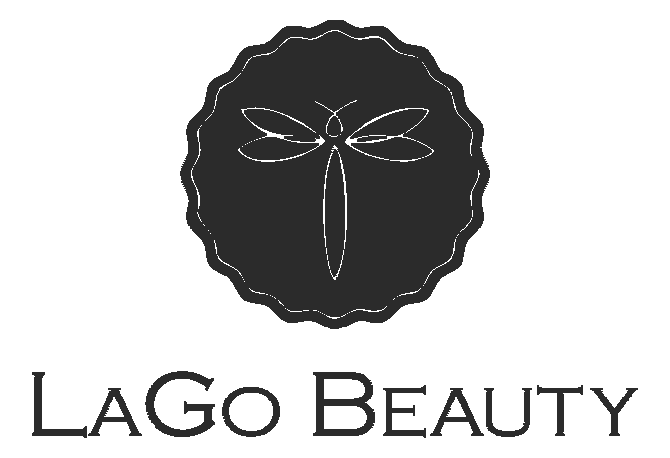SEO – Web design – Google Ads – Social media
Social media agency: Turn followers into real customers
Increase your reach and win customers through strategic social media marketing.
Individual marketing solutions
SEO
With strategic SEO, we secure top rankings on Google
and ensure more qualified customer inquiries.
Ads
With targeted advertising campaigns, we reach your target group immediately and generate measurable results directly
.
Web design
We create modern websites that strengthen your brand and turn visitors directly into customers with good design.





Why your social media posts are not producing results
Are you posting on Facebook and Instagram but not getting the response you hoped for? Many companies invest valuable time in their social media channels without achieving any significant results. It feels like your posts are simply drowning in the social media noise while your competitors seem to be winning new customers effortlessly.
This is exactly where we as your social media agency we start. Successful social media marketing is far more than just sharing pretty pictures. It’s a strategic process that requires a deep understanding of your target audience, creative content and a data-driven approach. We develop a clear plan so that you not only become visible, but build an active community that trusts your company and buys from you.






Build a loyal community around your brand
Today, social media is no longer just about reach, but about real relationships. People buy from companies they know, like and trust. A strong presence on platforms like Instagram, Facebook or LinkedIn is your chance to connect directly with potential customers, showcase your expertise and build a loyal following that will become repeat customers.
Our job as social media marketing experts is to develop an authentic voice for your brand. We create content that really helps your target group, answers their questions and entertains them. In this way, we ensure that your channels not only grow, but also become a valuable meeting point for prospects and customers.
Social Media is not a time waster – it’s a direct line to your customers
Many entrepreneurs are unsure whether the effort for social media is really worth it. They see it as a channel whose success is difficult to measure. We will show you the opposite: with the right strategy social media is one of the most effective and profitable marketing channels. It allows you to communicate directly with your target group and achieve measurable results without major wastage.
Targeted advertisements for more inquiries and sales:
We use the precise targeting options of platforms such as Facebook and Instagram to show your advertising message to exactly the people who are most likely to buy from you. Instead of spreading your budget thinly, we run highly efficient advertising campaigns that bring you new leads and customers in a predictable way.
Build trust and sympathy through valuable content:
We position your company as an expert and likeable brand. By continuously publishing relevant and engaging content – from helpful tips to behind-the-scenes insights – we build a strong emotional bond with your community. This trust is the basis for long-term success.
Concentrate on your business - we'll take care of the rest:
Professional social media marketing is time-consuming. We do all the work for you: from strategy and content creation to evaluation. You save valuable time and can rely on your channels being managed by experienced professionals who work towards clearmeasurable goals.
Analyze your website for free – more visibility now!
Have your website analyzed free of charge and discover optimization potential immediately. Get a quick SEO check with clear tips for better rankings, more visibility and more customers - free of charge, professionally and without obligation.
Our process: strategic, transparent and creative
Successful social media marketing is the result of a well thought-out process. We work closely with you and make every step comprehensible.

Strategy & Workshop (The foundation):
We start by analyzing your goals, your target group and your competition. In a joint workshop, we define the appropriate channel strategy, the core messages and measurable success indicators (KPIs).

Editorial planning & content creation (the content):
Based on the strategy, we create a detailed editorial plan. Our team produces high-quality content – from professional graphics and texts to short videos – that is perfectly tailored to your brand and the respective platform.


Community Management & Advertisements (The Interaction):
We publish the content, interact with your community, respond to comments and messages. At the same time, we set up targeted advertising campaigns to increase your reach and generate leads.

Reporting & Optimization (The results):
You receive regular and clear reports from us that show the success of our work. We continuously analyze the data in order to adapt the strategy and constantly improve the performance of your channels.

Are you ready to use social media profitably?
Stop losing valuable customers to competitors who are already one step ahead on social media. Take advantage of the enormous opportunity to engage directly with your target group and strengthen your brand in the long term.
Let’s talk in a free social media consultation about how we can lead your company to success on Facebook, Instagram & Co.
Frequently asked questions (FAQ)
What does social media marketing cost?
The costs for social media marketing are usually made up of two parts: the monthly fee for the agency Social media marketing agency (for strategy, content creation, management) and the separate advertising budget, which is paid directly to the platforms (e.g. meta). The amount of the costs depends heavily on the scope of the support and the objectives. After an initial consultation, you will receive an individual offer from us.
Which social media channels are right for my company?
This depends entirely on your target group. Put simply, platforms like Facebook and Instagram are ideal for B2C companies that want to reach end customers. LinkedIn is the leading channel for B2B marketing to reach business customers and decision-makers. In our strategic consulting, we analyze exactly which channels are best for reaching your customers.
Can you measure the success of social media?
Yes, absolutely. But success is not only measured in likes and followers. We define clear goals (KPIs) in advance that are relevant to your company. These can be, for example, the number of inquiries generated via a contact form, clicks on your website, sales in your online store or the increase in brand awareness. These key figures can be measured precisely.
Why should I hire a social media agency?
A professional agency not only saves you an enormous amount of time. Above all, they bring strategic know-how, creative ideas and experience from numerous projects. We know the algorithms, know what content works and how to use advertising budgets efficiently. This helps you avoid costly mistakes and achieve your goals much faster and more effectively.
Learn more
Social media agency | More customers & a strong brand
Summary
This page explains how a social media agency creates and implements customized strategies to win more customers and strengthen brands. It highlights measurable goals, ongoing analysis and optimization, and long-term success through creative content, engagement, and community building across key platforms. Core components include audience analysis, content planning, influencer collaborations, paid advertising, performance tracking, and crisis management. It also outlines who benefits from social media marketing and explores future trends like AI and AR/VR, supported by holistic consulting and execution.
Individual social media strategy
Together, we clarify your current situation, your requirements and wishes. Your personal contact will advise you on the advantages of the various platforms, get to know you and your company and then offer you a concept that reflects your values and inspires your customers.
We then set fixed goals and start implementing your individual social media concept. Inspire, entertain and inform your target group and turn customers into fans!
Measurable goals
Regular evaluations allow you to monitor the success of the campaign. Based on followers, reactions, interactions and many other indicators, you can see exactly how the campaign is performing.
We can also assess how the campaign is being received based on the reactions of the community. This allows us to make adjustments to the strategy in order to get the most out of your campaign.
Long-term successes
Social media offers great potential in most industries and companies of all sizes. Depending on the industry and the company, the goals to be achieved vary greatly. We know from experience that social media marketing is particularly useful:
— If you want to market your company in a creative and innovative way — If you want to reach additional target groups that may not be aware of your company via your website — If you want to encourage interaction with your target group and deepen customer relationships — If you want to increase traffic to your website and further expand your online presence
Social media marketing for your company
The potential of social media marketing is enormous. An appealing social media profile with targeted posts is the perfect complement to your website.
This makes it possible to reach your entire target group so that no potential customer is left behind. Your contact partner will be happy to advise you on your options and how promising a social media campaign is for your company.
From conception to implementation, we will be happy to accompany you on the way to a meaningful social media presence.
Individual social media support
- Customized concepts
- Addressing target groups effectively
- Strengthening trust and brand perception
- Flexibility and adaptability
Holistic marketing support
- Detailed marketing advice
- Holistic strategies for your company
- Long-term successes
- One contact for all concerns
What is social media marketing?
Social media marketing (SMM) is a marketing strategy that aims to promote the presence of a brand, product or service on social media platforms.
It encompasses a variety of activities aimed at reaching and engaging the target audience on platforms such as Facebook, Instagram, Twitter, LinkedIn, YouTube and others.
The main objectives of social media marketing are diverse and can vary depending on the specific goals of a brand or company. Some of the most common goals are:
Increase brand awareness: By sharing engaging content and interacting with the target group on social media, brands can increase their awareness and achieve a wider reach.
Customer loyalty and interaction: Social media provides a platform for direct interaction with customers and potential customers. By answering questions, responding to comments and sharing user-generated content, brands can build a closer bond with their target group.
Generating leads and sales: Social media marketing can help to generate qualified leads and promote the sale of products or services by placing targeted advertising and implementing call-to-action campaigns.
Building authority and credibility: By sharing relevant and informative content, brands can position themselves as leading experts in their field and gain the trust of their target audience.
Increase website traffic: By sharing links to website content and landing pages, brands can increase traffic to their website and make potential customers aware of their products or services.
To achieve these goals, social media marketing involves various strategies and tactics, including:
Content creation and publishing: The creation and publication of engaging and relevant content, such as posts, images, videos and infographics, that catches the attention of the target audience and encourages engagement.
Community management: Actively managing and interacting with the online community by answering questions, responding to comments and sharing user-generated content.
Social media advertising: The placement of targeted advertisements on social media platforms to increase reach, generate qualified leads and promote sales.
Social media monitoring and analysis: Monitoring and analyzing activities and interactions on social media to gain insights into campaign performance and continuously optimize strategy.
Overall, social media marketing is an integral part of a holistic marketing strategy and can help to strengthen a brand or company’s presence online and encourage engagement with the target audience.
Who should consider social media marketing?
Social media marketing is an extremely versatile strategy that is suitable for a wide range of businesses, organizations and individuals looking to strengthen their presence online and reach their target audience.
The variety of applications of social media marketing makes it an extremely attractive tool for different industries and company sizes.
For small businesses and start-ups, social media marketing offers a cost-effective way to increase their reach and stand out from the competition.
By sharing engaging content, engaging with their target audience and running targeted advertising campaigns, small businesses can raise their profile, drive customer loyalty and ultimately increase sales.
Medium-sized companies also benefit greatly from social media marketing.
They can use social media platforms to increase their brand awareness, acquire new customers and maintain existing customer relationships.
Through the targeted use of advertisements and the monitoring of social media activities, SMEs can gain valuable insights into the behavior and preferences of their target group.
Large companies and international corporations often use social media marketing as part of their overall marketing strategy.
They use social media platforms to spread their brand message, receive customer feedback and encourage interaction with their target audience.
By placing targeted advertisements, large companies can also effectively promote their products and services and increase sales.
E-commerce companies particularly benefit from social media marketing as they can promote and sell their products directly via social media platforms.
By integrating shopping functions into social media, e-commerce companies can improve their customers’ shopping experience and increase conversion rates.
Personal brands and influencers can use social media marketing to expand their reach, position themselves as experts in their field and partner with brands.
They can build a strong online presence by sharing engaging content, engaging with their target audience and collaborating with other influencers.
Non-profit organizations and charities use social media marketing to spread their messages, raise funds, recruit volunteers and connect with supporters.
Through the targeted use of social media platforms, non-profit organizations can increase their reach and effect positive change in society.
Overall, any business or organization that has a target audience and wants to build an online presence can benefit from social media marketing.
Through the targeted use of social media platforms, companies and organizations can increase their brand awareness, promote customer loyalty, generate leads and build long-term relationships with their target audience.
Which social media apps are particularly effective?
The effectiveness of social media apps depends heavily on the specific goals, target audience and type of content a brand or business wants to share.
However, there are some social media apps that are particularly effective for marketing purposes due to their popularity, functionality and reach:
Facebook: As the largest social media platform in the world, Facebook offers a diverse range of features that allow businesses to increase brand awareness, reach target audiences and interact with customers.
With Facebook, companies can share posts, images, videos and live streams, run ads and create groups to encourage community interaction.
Instagram: Instagram is an extremely effective platform for visually appealing content in particular. Businesses can share photos and videos, publish stories, use IGTV and increase their reach through hashtags and location tagging.
Instagram also offers a variety of advertising options, including sponsored posts, Stories ads and shopping features.
Twitter: With its focus on real-time communication, Twitter is well suited for interacting with the target group, sharing news and updates and building brand awareness.
Companies can publish tweets, respond to customer inquiries, use trends and place targeted advertisements.
LinkedIn: For B2B companies and professional networks, LinkedIn is an extremely effective platform. Companies can create professional profiles on LinkedIn, share industry content, join groups to connect with like-minded people and run targeted advertising campaigns to reach potential customers and employees.
YouTube: As the largest video platform in the world, YouTube is a great way for businesses to share engaging video content and increase their brand awareness.
Companies can publish tutorials, product launches, interviews and other videos to inform and entertain their target audience.
TikTok: TikTok is extremely popular, especially with younger target groups. Companies can share short, entertaining videos, capitalize on trends and launch viral challenges to increase their brand awareness and appeal to a young target group.
It’s important to note that choosing the most effective social media apps depends on a company’s individual goals and needs.
A comprehensive social media strategy can include the use of multiple platforms to reach different audiences and share different types of content.
By continuously monitoring and analyzing performance on different platforms, companies can determine which social media apps are best suited to their marketing goals.
Introduction to social media marketing
Social media marketing is a dynamic and indispensable component of today’s digital marketing mix.
It refers to the process of using social networks to promote and achieve business goals by interacting with the target audience, creating brand awareness and ultimately increasing sales.
At its core, it allows businesses to build a direct and more personal connection with existing and potential customers, which is crucial for success in the digital era.
The importance of social media marketing in the digital age cannot be overstated. With billions of users worldwide, social media offers an enormous reach and opportunity for influence that other marketing channels cannot match.
It allows companies to communicate in real time, gain valuable insights into their customers’ preferences and behaviors, and showcase their brand in an interactive environment.
In addition, social media marketing is cost-efficient, offers targeted advertising opportunities and supports search engine optimization (SEO) through increased visibility and traffic.
An overview of the various platforms shows the diversity of social media marketing. Each platform serves different target groups and purposes, which requires a differentiated strategy:
Facebook: With over 2 billion monthly active users, Facebook is one of the most versatile platforms, suitable for almost any target group. It is particularly strong in building community and engagement through posts, groups and events.
Instagram: As a visually-oriented platform, Instagram is particularly popular with younger generations. It is ideal for brands that want to share strong visual content through images and videos.
Twitter: Twitter is ideal for real-time communication and news. It enables brands to participate in current conversations and engage in direct dialog with followers.
LinkedIn: This platform is geared towards professional networks and is particularly suitable for B2B companies. LinkedIn helps to position industry leaders and build professional relationships.
TikTok: The newest of the major platforms, TikTok, has a predominantly young user base and offers unique opportunities for creative and viral content through short video clips.
Overall, social media marketing offers companies the opportunity to present their brand in an interactive, diverse and highly targeted environment.
However, successfully utilizing these channels requires a deep understanding of the respective platforms, their target audiences and best practices for content creation and distribution.
Goals and strategies in social media marketing
Setting clear marketing goals and developing a customized social media strategy are crucial for success in social media marketing.
This process begins with defining specific, measurable, achievable, relevant and time-bound (SMART) goals based on the overall business objectives.
The most common goals in social media marketing include increasing brand awareness, generating leads and driving sales. Each objective requires a specific approach and tactic to be implemented effectively.
Brand awareness: One of the primary goals in social media marketing is to increase brand visibility and ensure that as many people as possible get to know the brand and its values.
To achieve this goal, companies should create content that is easily shareable, encourages high user interaction and reflects the brand personality.
Visually appealing posts, interactive videos and regular updates can help to increase reach and anchor the brand in the target group’s consciousness.
Lead generation: Social media platforms offer excellent opportunities for generating leads.
Through targeted advertising campaigns, the use of call-to-action (CTA) in posts and the integration of landing pages, companies can address potential customers and encourage them to interact.
It is important to create content that is tailored to the needs and interests of the target group and offers clear added value.
Sales promotion: To promote sales via social media, companies can share special offers, discounts and exclusive content that is only available on their social media channels.
E-commerce integrations on platforms such as Instagram and Facebook also allow users to buy products directly via social media, which simplifies and promotes the purchasing process.
Achieving these goals requires the development of a customized social media strategy based on the company’s specific needs and resources.
This includes selecting the appropriate platforms adapted to the target audience and the type of content to be shared, as well as planning a content strategy that includes regular posts, interactions with followers and monitoring campaign performance.
Analyzing data and adjusting the strategy based on performance metrics is also critical to maximizing the success of efforts and effectively achieving marketing goals.
By setting clear goals and carefully planning and implementing a customized strategy, companies can harness the power of social media to strengthen their presence in the digital space and achieve their business goals.
Target group analysis and segmentation
Target group analysis and segmentation are critical steps in the development of an effective social media marketing strategy. They allow companies to not only identify but also deeply understand their target audience on social media.
This understanding is crucial for creating content and campaigns that resonate and engage.
By segmenting audiences, companies can target their messages to specific groups within their target audience, significantly increasing the effectiveness of their marketing efforts.
Identifying and understanding the target group on social media
The first step is to identify the target group. This includes defining basic demographic characteristics such as age, gender, geographic location and education level.
But to be truly effective, companies need to go beyond this surface data and understand the interests, needs, preferences and behavior of their target audience on social media.
This can be done by analyzing interaction data on their own social media channels, through surveys, feedback and by monitoring trends and discussions on relevant social networks and groups.
Audience segmentation methods for targeted campaigns
Once the target group has been identified and understood, the next step is segmentation. This is done on the basis of various criteria that go beyond the basic demographic characteristics:
Psychographic characteristics: These include personality traits, values, attitudes, interests and lifestyles. This information helps to create content that appeals emotionally and resonates with the values of the target group.
Behavior-based segmentation: This takes into account how the target group interacts with your brand. This includes purchasing behavior, frequency of use of products or services, level of interaction with previous campaigns and reactions to different types of content.
Geographic segmentation: Although it is one of the basic demographic characteristics, geographic location can have a big impact on the behavior and needs of the target audience, especially when it comes to local brands or offers.
Various tools and techniques are available for effective segmentation and understanding of the target audience, including social media analytics platforms, customer relationship management (CRM) systems and specialized market research tools.
These tools can provide valuable audience insights and help to collect and analyze data for segmentation.
By segmenting audiences, companies can fine-tune their social media strategies and campaigns to ensure that the right people are targeted in the way that is most relevant to them.
This not only leads to higher engagement and better conversion rates, but also strengthens brand loyalty and trust within the target group.
Content creation and planning
Content creation and planning is a key element of successful social media marketing strategies. High quality and engaging content is crucial to capturing audience attention, driving engagement and ultimately achieving marketing objectives.
A well-thought-out content strategy helps to maintain consistency and ensure that each publication contributes to the brand message and resonates with the target audience.
Importance of high-quality and appealing content
In today’s fast-paced social media landscape, the quality of content is crucial to stand out from the crowd. High quality content is informative, entertaining or inspiring and offers clear added value to the audience.
It authentically reflects the brand and appeals to the target audience on an emotional level, which is essential for promoting brand loyalty and customer retention.
Engaging content also encourages interaction by encouraging sharing, commenting and liking, which increases the brand’s visibility on social networks.
Planning and creation of a content calendar for regular contributions
Consistent and strategically planned content publishing is critical to maintaining social media presence and driving audience engagement.
A content calendar is an indispensable tool for this. It allows marketing teams to plan topics and publishing dates in advance, take into account key events and holidays and ensure that a variety of content types are covered.
This not only facilitates planning and coordination within the team, but also ensures that content is published regularly and at the optimal time.
The following steps should be taken into account when creating a content calendar:
Objectives: Define clear objectives for your content based on your overall marketing goals.
Target group analysis: Understand your target group to create content that resonates and engages.
Topic planning: Develop a list of topics that are of interest to your target group and support your brand message.
Formatting and planning: Determine the formats you want to use (e.g. posts, videos, stories) and plan when and on which platforms they should be published.
Resource allocation: Make sure you have the necessary resources and tools to implement your content strategy.
Monitoring and adjustment: Evaluate the performance of your content regularly and adjust your strategy accordingly.
Careful planning and content creation is essential for success on social media.
A well thought out content calendar not only helps to engage the audience and communicate the brand message consistently, but also allows you to respond strategically to trends and developments and strengthen the overall marketing strategy.
Engagement and community building
Engagement and community building are crucial aspects of social media marketing that can make or break a brand’s success in digital environments.
Having an engaged community not only means that content is seen and shared regularly, but also creates a loyal following that contributes to brand awareness and ultimately business success.
Here are some effective techniques and strategies to encourage user interaction and build and maintain a vibrant online community.
Techniques to promote user interaction and engagement
Create interactive content: Surveys, quizzes and interactive videos can encourage users to actively participate and share content.
Hashtag campaigns: By creating unique hashtags for your brand, you can spark conversations and encourage users to create and share content related to your brand.
Promote user-generated content (UGC): Encourage your community to create their own content and share it with a specific hashtag. This not only increases engagement, but also strengthens the relationship between brand and audience.
Regular interaction: Respond promptly to comments, messages and posts from users. Regular interaction shows that you value the contribution of the community and promotes a positive relationship.
Strategies for building and maintaining an online community
Communicate clear values: A strong, engaged community is built around shared values and interests. Make sure your brand clearly communicates its core values and creates content that reflects these values.
Offer exclusive content: Exclusive offers, information or content for community members can strengthen the sense of belonging and promote loyalty.
Organize community events: Online events, live sessions or Q&A rounds offer excellent opportunities to make direct contact with your community and encourage engagement.
Obtain community feedback: Involve your community in decision-making processes by asking for feedback on new products, services or content. This shows that you value the opinions of your followers and strengthens the bond with the brand.
Promote advocacy and ambassadors: Identify active members of your community and encourage them to act as brand ambassadors. This can significantly increase the engagement and reach of your brand.
Building and maintaining an engaged online community takes time and dedication, but the benefits that a vibrant and interactive community can provide are immeasurable.
By encouraging interaction and creating an inclusive, value-based environment, brands can not only increase engagement, but also build long-term relationships with their audience that go beyond simple transactions.
Influencer marketing
Influencer marketing has established itself as a powerful strategy in social media marketing by leveraging the credibility and reach of influencers to authentically convey brand messages.
Influencers, individuals with significant followings and influence on social media, can play a crucial role in raising awareness of a brand, building trust and ultimately influencing purchasing decisions.
Here are some key points and tips for effectively integrating influencer marketing into your social media strategy.
The role of influencers in social media marketing
Influencers act as trusted intermediaries between brands and potential customers.
Through their ability to tell authentic stories and share personal experiences with products or services, they can build a deeper emotional connection with their audience.
This trust and authenticity is particularly valuable at a time when consumers are increasingly skeptical of traditional advertising. In addition, targeting influencers with specific niches or interests allows brands to reach precise audiences.
Tips for selecting the right influencers and designing successful campaigns
Relevance over reach: Choose influencers based on relevance to your brand and target audience, not just the number of followers they have.
An influencer whose content and audience closely align with your brand will be more effective than someone with a large but less engaged or relevant following.
Evaluate authenticity: Look for influencers whose content style and values match your brand. Influencers who already show a natural affinity with your products or services can convey your message more credibly.
Set clear goals: Define what you want to achieve with the campaign, be it brand awareness, lead generation or direct sales. This will help you design the campaign and measure its success.
Allow creative freedom: While clear guidelines are important, give influencers enough creative freedom to create content that authentically fits their own style and voice. This promotes the authenticity and resonance of the campaign.
Measure results: Set metrics to evaluate the success of your campaign. These can include engagement rates, traffic growth, conversion rates or sales increases. Use this data to adjust the campaign and inform future strategies.
Influencer marketing offers a unique opportunity to increase visibility and interact with target audiences in a personal and meaningful way.
By carefully selecting influencers and creating campaigns that promote authenticity and creativity, brands can fully utilize the power of influencer marketing and strengthen their social media presence.
Advertisements on social media
Ads on social media are a powerful tool in digital marketing that enables brands to communicate with their target group in a targeted and efficient manner.
Each social media platform offers its own specific advertising formats and opportunities, tailored to different marketing objectives and target audiences.
The effective use of these advertising options can significantly increase a brand’s visibility, boost engagement and ultimately contribute to a company’s success.
Here’s a detailed look at the advertising options and some best practices for creating successful campaigns.
Overview of advertising opportunities and formats on various platforms
Facebook: Offers a full range of advertising options, including image and video ads, Carousel ads, which showcase multiple images or videos in a single ad, and Instant Experiences, which offer full-screen, mobile-optimized experiences.
Facebook’s granular targeting allows advertisers to target users based on demographics, interests, behaviors and more.
Instagram: As a visually-oriented platform, Instagram is ideal for photo and video ads that appear in the feed or as stories. Story ads offer the opportunity to use full-screen content with embedded call-to-action buttons.
Instagram also enables the use of shopping ads that lead directly to products.
Twitter: Twitter ads range from Promoted Tweets, which appear in the user’s newsfeed, to Promoted Accounts, which aim to increase follower numbers. Twitter is particularly effective for timely campaigns that tie in with current events and trends.
LinkedIn: Specializing in professional networks, LinkedIn offers Sponsored Content to promote posts in the newsfeed, Sponsored InMail for personalized messages directly to users’ inboxes, and Display Ads.
LinkedIn is particularly valuable for B2B marketing and employer branding.
TikTok: Offers innovative advertising formats such as in-feed videos, branded hashtag challenges and branded effects. TikTok is ideal for reaching a younger target group and motivating users to interact and share content.
Best practices for creating effective and targeted ads
Know your target group: In-depth knowledge of your target group is crucial in order to create relevant and appealing ads. Use the platforms’ extensive targeting options to play out your ads in a targeted manner.
Set clear goals: Define clear and measurable goals for each advertising campaign, be it increasing brand awareness, generating leads or direct sales.
Use appealing visuals: High-quality and visually appealing images or videos are crucial to grab attention in fast-moving social media feeds.
A/B testing: Test different versions of your ads to find out which images, texts or call-to-actions deliver the best performance.
Measurement and analysis: Monitor the performance of your ads regularly and adjust your strategy based on the insights gained. Use the platforms’ specific analysis tools to measure the effectiveness of your campaigns.
By strategically utilizing the different ad formats and following these best practices, brands can optimize their social media advertising campaigns to effectively reach their target audiences and achieve significant results.
Measuring and analyzing social media success
Measuring and analyzing the success of social media activities is essential to understanding the effectiveness of marketing strategies and making informed decisions for future campaigns.
By monitoring specific key performance indicators (KPIs), companies can quantify the impact of their social media efforts and identify optimization potential.
Here are the most important KPIs and the tools and techniques that can be used to measure social media performance and adjust strategy.
Key performance indicators (KPIs) for social media activities
Reach and impressions: The total number of people who have seen a post provides information about the visibility of the content.
Engagement rate: The interactions (likes, comments, shares) in relation to the reach or number of followers show how well the content is received by the audience.
Follower growth rate: The speed at which the number of followers increases reflects the attractiveness of the brand on social media.
Click-through rate (CTR): The percentage of users who click on a link provides information on how effective the call-to-actions are designed.
Conversion rate: The number of users who perform a desired action (e.g. purchase, registration) after clicking on an ad or post shows the direct impact on business goals.
Customer satisfaction and feedback: Direct feedback and ratings from users can provide valuable insights into customer satisfaction.
Tools and techniques for measuring performance and adapting the strategy
Integrated analysis functions of the platforms: Most social media platforms offer their own analytics tools that provide insights into the performance of posts and campaigns.
Examples include Facebook Insights, Instagram Analytics and Twitter Analytics.
Third-party tools: Tools such as Hootsuite, Buffer, Sprout Social and Google Analytics offer advanced analytics across multiple platforms. They enable a detailed evaluation of KPIs and the tracking of conversions.
A/B testing: By testing different versions of posts or ads, companies can find out which elements (images, texts, CTAs) deliver the best results and adjust the strategy accordingly.
Sentiment analysis: Sentiment analysis tools, such as Brandwatch or Mention, can analyze the mood in relation to the brand in social media and provide insights into public perception.
Competitor analysis: Observing the social media activities of competitors can provide valuable benchmarks and help to optimize your own strategy.
Systematically measuring and analyzing KPIs enables companies to understand the ROI of their social media activities and make strategic decisions to continuously improve their online presence.
By using specialized tools and techniques, brands can refine their social media strategies to better engage with their audience and achieve their business goals more effectively.
Dealing with crises and negative feedback on social media
Dealing with crises and negative feedback on social media is a particular challenge, but it is also an opportunity to demonstrate a brand’s strength and responsiveness.
An effective crisis management strategy and professional handling of criticism are essential to minimize damage and maintain or even strengthen audience trust.
Here are some best practices and principles that can help companies respond appropriately in such situations.
Strategies for crisis management and dealing professionally with criticism
Preparation is key: Develop a crisis management plan that provides clear guidelines for identifying, assessing and responding to potential crises. Knowing who can and should communicate in times of crisis is crucial.
Fast and transparent communication: In times of crisis, quick action is required. Prompt, transparent and honest communication can help to avoid speculation and misinformation.
Explain clearly what has happened, what is being done to solve the problem and what steps are being taken to avoid future problems.
Show empathy: Show understanding and compassion for any inconvenience or problems caused by the crisis. A human touch in your answers can help to defuse the situation and promote understanding among your audience.
Active listening and engagement: Actively monitor discussions around your brand and recognize signs of crisis early. Engage in conversations, answer questions and address concerns to show that you are taking your audience’s concerns seriously.
The importance of listening and responding quickly on social media
Listening as an early warning system: Use social listening tools to monitor sentiment and conversations around your brand. This can serve as an early warning system for potential problems and allow you to act proactively before a situation escalates.
Minimize response time: In the world of social media, every minute counts. A quick response can be crucial in controlling the narrative and preventing negative sentiment from spreading.
Adapt your strategy: Based on the feedback and reactions of your audience, you should be prepared to adapt your communication strategy. This may mean postponing planned posts, changing the tone or providing additional information.
Crises and negative feedback are inevitable aspects of online marketing, but with a well-thought-out strategy and a proactive, empathetic approach, companies can overcome these challenges.
Listening, responding quickly and communicating professionally are key components to maintaining or restoring audience trust and loyalty even in difficult times.
Future trends in social media marketing
Social media marketing is in a constant state of evolution, shaped by the emergence of new technologies and platforms that are fundamentally changing the way brands interact with their audiences.
Innovations such as Artificial Intelligence (AI), Virtual Reality (VR) and Augmented Reality (AR) are already beginning to reshape the landscape of social media marketing and offer exciting opportunities for future campaigns.
Here’s a look at some future trends and the potential role of new technologies in the social media space.
Presentation of new technologies and platforms
Augmented reality (AR) and virtual reality (VR): AR and VR technologies offer unique opportunities for immersive storytelling and interactive experiences.
Brands can use these technologies to present products in a virtual environment, which is particularly useful in the e-commerce sector.
Artificial intelligence (AI) and machine learning: these technologies are revolutionizing social media marketing through personalized content, improved customer interactions and more efficient targeting.
Chatbots that use AI, for example, enable automated yet personalized communication with users.
Blockchain technology: While blockchain is mainly associated with cryptocurrencies, it also offers interesting application possibilities in the field of social media marketing, e.g. for authenticating user identities or protecting the copyrights of digital content.
Discussion about the role of AI, VR and other innovations
AI in content marketing: AI can help identify patterns in data and make predictions, allowing brands to create highly personalized content tailored to the interests and needs of their audience. This can significantly increase engagement rates.
VR/AR for unique brand experiences: By incorporating VR and AR into social media campaigns, brands can create unique, immersive experiences that not only capture users’ attention, but also foster a deeper understanding of products and services.
Automation and personalization: AI-driven tools enable more efficient management of social media activities, from content creation to community management, while offering a high degree of personalization in communication.
While these technologies have the potential to revolutionize social media marketing, it is important that brands continue to focus on authenticity and genuine interactions.
The future of social media marketing will not only be defined by technological advances, but also by brands’ ability to utilize these technologies in a way that creates real value for their audience.
By staying current and being willing to adopt and experiment with new technologies, brands can thrive in the dynamic landscape of social media marketing.
Get in touch with us!
Do you want more visibility, more leads and sustainable growth? Then we are the right partner for you!
Whether you have questions, would like advice or want to get started right away - we look forward to getting to know you and starting your digital mission together.
Just write to us or give us a call - we are here for you!


















